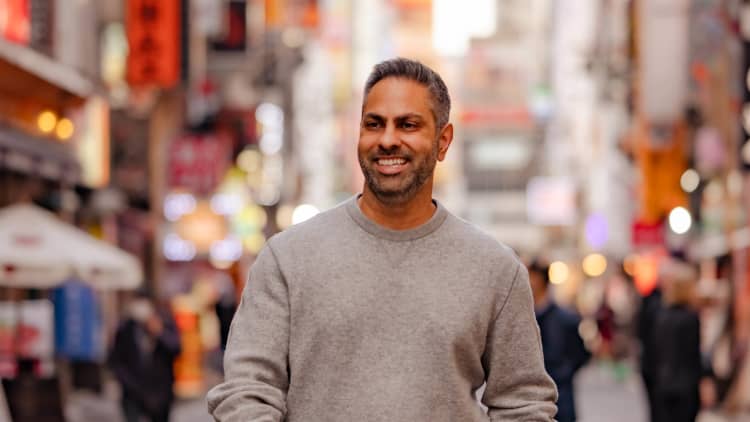Self-made millionaire Ramit Sethi discovered that a couple earning six figures is making a "catastrophic" money mistake.
In his newsletter, Sethi shared how a real-life couple in their late 30s spends their nearly $280,000 salary. The couple anonymously shared their income, savings, investments and spending habits with Sethi for him to analyze:
Based on a quick overview of the couple's finances, Sethi found that the couple has zero savings and investments. "This is catastrophic," he says in the newsletter. "Need to change this immediately."
He noticed that the couple is spending over $2,000 on their car payments which he says is "fine," but he would advise that they scale back those expenses and put that money toward their savings and investments.
Sethi notes that numbers alone don't always tell the full story of how people manage their money, which is why he enjoys talking to couples about their finances on his podcast, "I Will Teach You To Be Rich."
But having a healthy savings account is crucial, since it can help you avoid going into costly credit card debt due to unexpected emergencies.
"Unless someone has a path towards quick repayment, [credit card debt] becomes problematic," Mark Hamrick, Bankrate's senior economic analyst, told CNBC Make It in March. "It doesn't replace savings because savings is, essentially, our own free money."
And financial experts continually point to investing as one of the most reliable ways to build wealth.
This is because investing allows you to make your money work for you, thanks to the power of compounding interest. With this, your initial investment grows exponentially by earning returns not only on the principal amount, but on the interest it accumulates as well.
Say your initial investment is $1,000 and you earn an annualized return of 10%, the average stock market return, according to NerdWallet. A year later, your investment would have theoretically grown to $1,100 which is your original $1,000 investment plus 10%.
By year two, you would start to see compound interest work its magic. That year, you'd earn 10% on your entire account total, not just your initial investment. So, you'd have $1,210 by the end of the second year which is your $1,100 plus 10% of that amount.
You can see how compounding interest works for yourself by using CNBC Make It's compound interest calculator. All you need to do is plug in your initial deposit, your monthly or annual contributions, how many years you're giving it to grow and your expected annual return. From there, the calculator can show you how much your money could grow over time.
Although investing may seem intimidating, not doing so may cause you to miss out on giving your money a chance to grow more than it would simply sitting in a checking account or stuffed under your mattress.
Financial experts say that low-cost index funds can be a great way to get your investment journey started.
These types of investment funds attempt to mimic the performance of a benchmark index such as the S&P 500, which tracks the stock movement of around 500 publicly traded companies in the U.S.
Since an S&P 500 index mutual fund or exchange-traded fund (ETF) allows you to spread your investment across a wide array of companies, experts generally consider investing in these types of funds to be less risky than owning individual stocks. Plus, they can be an easy way to introduce diversity to your investment portfolio.
Ultimately, investing can be thought of as long-term wealth-building strategy rather than a way to amass a lot of money quickly.
"Real wealth is almost always created consistently over a long period of time," Sethi told CNBC Make It in December. "It's boring, as it should be."
DON'T MISS: Want to be smarter and more successful with your money, work & life? Sign up for our new newsletter!
Want to earn more and land your dream job? Join the free CNBC Make It: Your Money virtual event on Oct. 17 at 1 p.m. ET to learn how to level up your interview and negotiating skills, build your ideal career, boost your income and grow your wealth. Register for free today.
CHECK OUT: Self-made millionaire: You don’t have to give up lattes to get rich—do this instead



